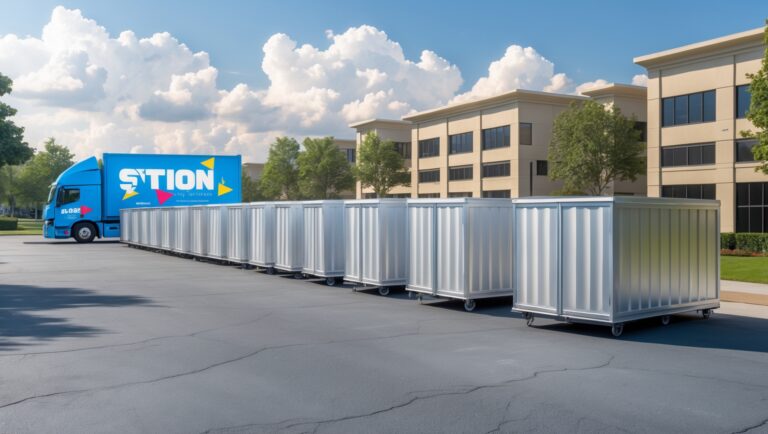Understanding Moving Permits: A Step-by-Step Guide for Stress-Free Relocation
Introduction: Why Moving Permits Matter for Every Relocation
When planning a move, most people focus on packing boxes, hiring movers, and booking trucks, but there’s a crucial step that often flies under the radar: securing the correct moving permits. Whether you’re moving across town or just around the block, many cities require permits to reserve parking for moving trucks or to authorize the use of elevators and loading docks. Skipping this step can lead to costly fines, frustrated movers, and even the risk of your truck being towed or your move delayed. Understanding moving permits isn’t just for commercial relocation companies—it’s essential knowledge for every homeowner, renter, and small business making a move. In this comprehensive guide, we’ll demystify the world of moving permits, breaking down what they are, why they matter, how to obtain them, common pitfalls, and city-specific requirements. By the end, you’ll have a clear, actionable plan for ensuring your move is seamless, compliant, and stress-free.
What Are Moving Permits?
Moving permits are legal authorizations granted by local municipalities that allow you to temporarily reserve public space—usually curbside parking—for the exclusive use of your moving truck or storage container. In some cases, they also grant access to building loading docks, elevators, or restrict street access to facilitate a large move. These permits are especially common in dense urban areas, where parking is limited and streets are heavily regulated.
Types of Moving Permits
- Curbside Parking Permits: Reserve street parking for moving trucks or containers.
- Temporary No Parking Signs: Authorize posting signs to prevent other vehicles from parking in your reserved space.
- Elevator/Loading Dock Permits: Allow exclusive access to building facilities for a specific window of time.
- Street Closure Permits: Required for exceptionally large moves that may block traffic or require full street closure.
Why Are Moving Permits Required?
Local governments enforce moving permits for several important reasons:
- Traffic Management: Prevents congestion and ensures clear passage for emergency vehicles.
- Public Safety: Reduces the risk of accidents from double-parked trucks or blocked crosswalks.
- Fairness: Ensures everyone has equal access to limited curbside space.
- Revenue: Generates income that helps maintain city infrastructure.
Determining If You Need a Moving Permit
Not every move requires a permit, but it’s crucial to check local regulations before moving day. Here’s how to assess if you need one:
- Are you moving into or out of a major city or town?
- Will your moving truck or container be parked on a public street?
- Does your building have restricted loading dock or elevator access?
- Is parking scarce or heavily regulated in your neighborhood?
If the answer to any of these is yes, odds are you’ll need a permit. Ignoring local rules can result in hefty fines, tow fees, or even failed moves.
How to Obtain a Moving Permit: Step-by-Step
1. Research Local Requirements
Start by visiting your city’s official website or calling the Department of Transportation or Parking Authority. Search for “moving permit,” “temporary parking permit,” or “street occupancy permit.” Review the following:
- Application forms and processes
- Fees and payment methods
- Advance notice required (some cities require 3–14 days)
- Documentation needed (proof of residence, moving company details, truck size, etc.)
2. Submit Your Application
Most cities now allow online applications, though some require in-person visits or mailed forms. Ensure you provide:
- Accurate address and date/time of your move
- Truck size and license plate (if known)
- Payment (fees range from $10 to $200 depending on city and permit type)
3. Post Required Signage
Many permits require you to post “No Parking” signs or official placards a set number of hours or days before your move (often 24–72 hours). These signs warn neighbors and legally reserve the space for your truck. Some cities provide signs; others require you to print or purchase them yourself.
4. Confirm and Display Your Permit
Once approved, keep your permit documentation handy—either printed or digital. Place permits on your dashboard, moving truck windshield, or as directed by local rules. This prevents ticketing or towing during your move.
5. Coordinate with Movers and Neighbors
Inform your moving company of your permit details, including the exact location and time window. Give neighbors advance notice about the reserved space and temporary inconvenience.
City-by-City Breakdown: Key Differences and Notable Rules
Permit requirements and processes vary widely. Here are examples from major U.S. cities:
New York City
- Moving permits are required for commercial vehicles, not private cars.
- Temporary No Parking signs must be posted 48 hours in advance.
- Fees: Around $45 per day per space.
- Apply via the NYC DOT website.
Boston
- All moves requiring parking a vehicle on a city street need a permit.
- “No Parking” signs are issued by City Hall and must be posted at least 48 hours in advance.
- Fees: $69 for a one-day permit (additional charges for metered spaces).
- Apply in person or online.
San Francisco
- Moving permits required if using public parking for a moving truck.
- Must apply at least 5 business days in advance.
- Fees: $168 for two spaces for one day, plus sign fees.
- Apply through SFMTA.
Chicago
- Permits required for moving trucks parked on public streets.
- Temporary signs must be posted 72 hours prior to move.
- Fees: Around $25 for the permit, plus $4 per sign.
- Apply at your local Alderman’s office or online.
Seattle
- Permits required for any moving vehicle blocking a street, sidewalk, or alley.
- Apply at least 3 business days in advance.
- Fees: Start at $35 per day.
- Apply online via the Seattle DOT.
Common Mistakes to Avoid
- Waiting too long to apply: Some cities require applications up to two weeks in advance.
- Not posting signs early enough: Failing to do so can void your permit and leave you without reserved space.
- Underestimating truck size: Reserve enough space for your truck plus room for loading ramps.
- Ignoring meter regulations: Some cities charge extra for metered spaces or require meter hoods.
- Assuming apartment buildings handle permits: Many buildings do not arrange street permits—always confirm.
- Overlooking return or removal of signage: Some cities fine for signs not removed after your move.
Tips for a Smooth, Permit-Compliant Move
- Apply early: As soon as you know your moving date, start the permit process.
- Double-check dates and addresses: Errors can void your permit or cause confusion on moving day.
- Communicate with your movers: Share all permit details and reserved locations.
- Scout your space in advance: Ensure there are no existing restrictions, construction, or events impacting your spot.
- Prepare for enforcement: Have permit paperwork accessible in case city officials or police request it.
Special Situations: Apartments, Condos, and HOAs
If you’re moving into or out of a building with an HOA or property manager, additional rules may apply. Some require:
- Separate permits for building elevators or loading docks
- Specific moving hours (often weekdays, 9am–5pm)
- Proof of city permit before reserving building facilities
Always coordinate with your building’s management well in advance to avoid conflicts or delays.
Moving Permits for Pods and Portable Storage Containers
PODS and portable storage containers are a popular alternative to trucks, but they often require special permits. Cities may restrict how long containers can stay on the street (typically 1–3 days) and require additional fees. Always check both city and HOA rules for container placement and duration.
Costs and Budgeting for Moving Permits
Permits are a small line item compared to your total moving budget, but they can add up—especially if you need permits at both origin and destination. Be sure to include:
- Permit fees (per day, per space, or per sign)
- Signage or meter hood fees
- Rush processing fees (if you apply late)
- Potential fines for non-compliance
Budgeting $50–$250 for permits is typical for urban moves.
What Happens If You Don’t Get a Permit?
Skipping the permit can lead to:
- Parking tickets—often $50–$200 per violation
- Towing fees—which can exceed $150
- Delays—if your moving truck can’t park or unload safely
- Rescheduling fees—from moving companies if they can’t access your home
Compared to these risks, the time and cost of securing a permit is a wise investment.
FAQs about Moving Permits
Do I need a permit if I’m using my own car or a small van?
If you’re parked on a public street in a regulated area, you may still need a permit, especially if occupying multiple spaces or using loading equipment.
Can my moving company get the permit for me?
Some full-service movers offer to handle permits, but this is not guaranteed. Always clarify with your moving company and verify the permit is secured in your name or theirs.
What if someone parks in my reserved spot?
Contact your local parking authority or police non-emergency line. With posted signage and a valid permit, unauthorized vehicles may be ticketed or towed.
Conclusion: Make Moving Day a Success with the Right Permits
Securing moving permits may seem like a bureaucratic hassle, but it’s a simple step that can make the difference between a chaotic move and a smooth, stress-free experience. By researching your city’s requirements, applying early, and communicating with your movers and neighbors, you ensure legal compliance and avoid costly surprises. Remember, the true cost of a permit is minimal compared to the potential headaches of fines, towing, or delays. Treat permits as an essential part of your moving checklist—just like packing supplies or hiring a reputable moving company. With the right preparation, your move can be efficient, organized, and compliant with all local regulations. Don’t let a missing permit derail your big day; take charge, plan ahead, and enjoy the confidence that comes from knowing you’re moving by the book. Safe travels to your new home!





